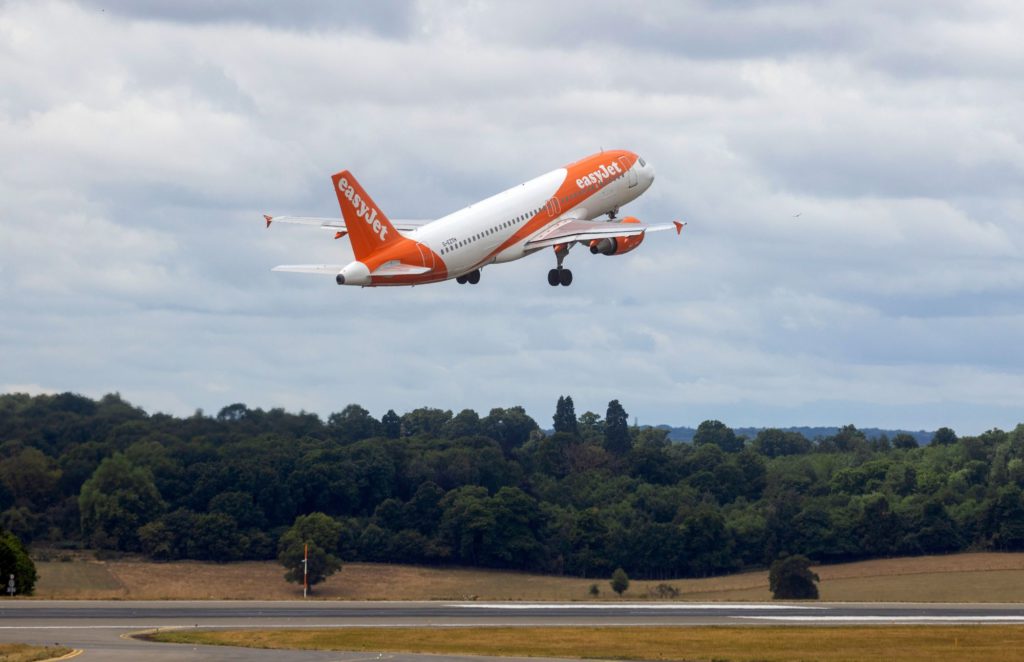EasyJet Plc said it would drop carbon offsetting from the start of next year as it targets net zero carbon emissions by 2050, focusing instead on new technologies including an Airbus SE system that reduces fuel burn as aircraft land, and concluding a deal for the supply of sustainable aviation fuel.
(Bloomberg) — EasyJet Plc said it would drop carbon offsetting from the start of next year as it targets net zero carbon emissions by 2050, focusing instead on new technologies including an Airbus SE system that reduces fuel burn as aircraft land, and concluding a deal for the supply of sustainable aviation fuel.
The Luton, England-based carrier confirmed a goal of cutting emissions 35% by 2035 in a briefing Monday and said a roadmap including newer jets, operational efficiencies, airspace modernization and the increased use of SAF has been backed by the Science-Based Targets initiative.
The Airbus landing technology, to be retrofitted across EasyJet’s A320-series fleet by the end of 2023 at a cost of several million pounds, allows planes to cruise for longer at higher altitude before descending. Airbus says EasyJet’s annual fuel use will be cut by 98 metric tons per aircraft, or 1%, and carbon emissions by 88,600 tons.
Net zero will be achieved in 2050 through a 78% reduction in CO2 output and the deployment of carbon-removal technology to address residual emissions, EasyJet said.
New initiatives in what EasyJet says is the airline industry’s most ambitious decarbonization plan include a five-year agreement on the supply of SAF with Q8Aviation. It said collaboration with Rolls-Royce Holdings Plc on hydrogen propulsion is progressing well.
EasyJet’s roadmap includes:
- Fleet renewal: 160 more efficient Airbus A320neo jets on order
- Operational efficiencies including single engine taxiing and engine washing, as well as Airbus’s Descent Profile Optimisation system
- Increased use of SAF in line with European Union-proposed mandates
- Airspace modernization including a 10% CO2 reduction by 2035 through implementation of Single European Sky
- Early adoption of zero carbon emission aircraft once viable
- Carbon removal technology to tackle residual emissions
(Adds plan to drop carbon offsets from first paragraph)
More stories like this are available on bloomberg.com
©2022 Bloomberg L.P.











